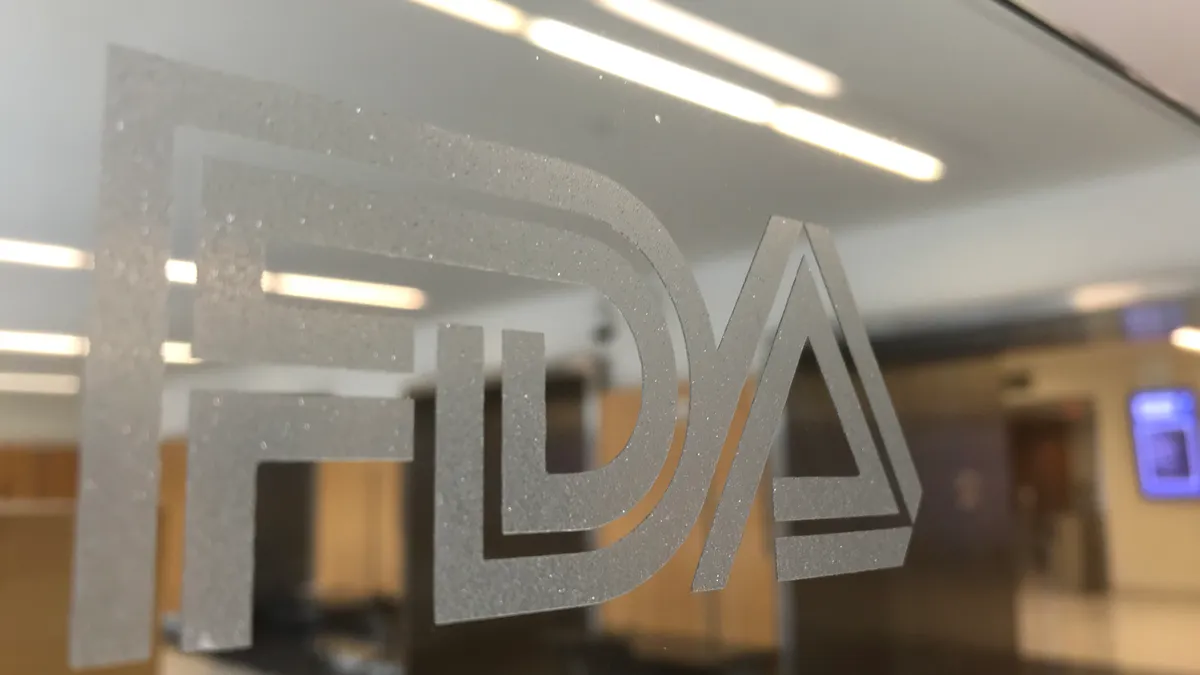FDA has granted breakthrough device designation to a clutch of cardiovascular disease products, part of a wider batch of breakthrough designations that include products in development at companies including Roche.
On Monday, FDA awarded breakthrough device status to Puzzle Medical Devices’ minimally invasive transcatheter heart pump. The pump, called ModulHeart, is designed to enable heart failure patients to get treated without undergoing open-heart surgery. Physicians implant the modular, long-term hemodynamic transcatheter pump in the descending aorta via an incision on the subclavian artery. Puzzle is pairing the pump with a portable controller and a bedside monitoring station.
The breakthrough status comes months after Puzzle closed its first financing round. With the extra support from FDA, Puzzle now plans to build on acute in-vivo preclinical implantations and advance its pump toward the market.
Puzzle disclosed its breakthrough status within days of updates from other developers of medical devices used in the treatment of cardiovascular disease. Alleviant Medical received breakthrough status for its implant-free approach to the treatment of chronic heart failure. Rather than introduce a permanent implant or perform open-heart surgery, physicians can use the transcatheter technology to decompress the left atrium in a procedure performed under fluoroscopy and ultrasound guidance.
Alleviant is currently working to generate evidence of the effectiveness of its approach in humans. The Texas-based medtech expects to have data from its initial series of procedures later this year.
Fellow Texas-based medtech Vascular Perfusion Solutions picked up a breakthrough designation for its cardiac transport device. The device, which fits in the overhead compartment of a commercial airliner, is designed to preserve vascularized tissue for eight hours using oxygenated perfusion. By doubling the time hearts can spend outside of the body, VPS hopes to reduce the number of organs that are rejected and, in doing so, enable more patients to receive life-saving transplants.
VPS has tested the device in small animal studies. The breakthrough status positions VPS to benefit from additional regulatory support as it works toward human testing. VPS is initially developing the device for the transport of hearts but thinks the technology is similarly applicable to kidneys, livers and lungs.
Pedra Technology received breakthrough status for its real-time tissue perfusion system in the treatment of critical limb threatening ischemia. The device is designed to deliver perfusion feedback in under 10 seconds, thereby giving physicians the information they need to make optimal decisions in the angio suite.
Roche and the rest
The cardiovascular disease breakthrough designations are part of a broader batch of updates about devices and diagnostics in multiple disease areas. Roche recently received breakthrough status for the use of its Elecsys growth differentiation factor-15 (GDF-15) assay in the identification of “patients suitable for innovative treatment addressing unintentional weight loss in cancer patients.”
The Elecsys assay uses the sandwich test format to help determine which cachexic patients with solid tumors are eligible for treatment with Pfizer's investigational drug PF-06946860. Pfizer is using the assay to identify patients with GDF-15 levels of 1.5 ng/mL or greater in a clinical trial. The biomarker correlates with cachexia and reduced survival in cancer patients.
Separately, FDA granted breakthrough status to ShiraTronics’ neurostimulation treatment for chronic migraine. ShiraTronics spun out from global medical device accelerator NuXcel to develop neuromodulation treatments for debilitating migraine and went on to raise $33 million in 2019. The company says it is in the early stages of developing the treatments.
Finally, Geistlich Pharma received breakthrough status for its Chondro-Gide articular cartilage cover. The device is a collagen membrane designed for use in a single-step cartilage repair technique. Use of the device in Europe has demonstrated the potential to repair cartilage lesions and enhance the effect of bone marrow stimulation techniques. Geistlich now plans to work with FDA to generate the data needed to bring the product to the U.S. market.










